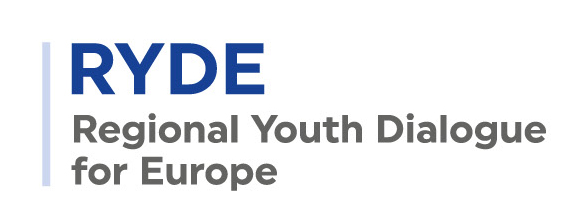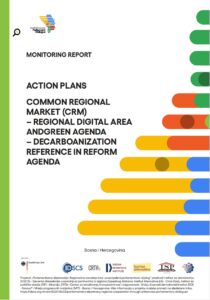Tackling climate requires ambition and inclusivity. Climate crisis in no exception. Some progress is made on ambition. Constant failure is noted on inclusivity.
WB Green Agenda is no exception.
Introduction
The Green Agenda for the Western Balkans, is a growth strategy developed for the region, which aims to address challenges related to climate change and green transition. It is developed based on the European Green Deal which aims to achieve “no net emissions of greenhouse gases by 2050, economic growth decoupled from resource use, and no person and no place left behind”. Implementation of the WB Green Agenda is supported by the Economic Investment Plan and further detailed by the Guidelines issued by the European Commission.
By signing the Sofia Declaration, countries of the region committed to implement the Green Agenda, whereas the Regional Cooperation Council will keep the torchlit of implementation, by also developing an action plan. The Green Agenda, includes five main pillars: climate, energy and mobility; circular economy; pollution prevention; sustainable agriculture and food production; and biodiversity.
Why is the Green Agenda important for the Western Balkans?
The Western Balkans comprises six countries and as a region it has a pristine landscape and a wealth of natural resources. It is, however, one of the most vulnerable regions to the negative consequences of climate change. From raising temperatures, to floods and fires, communities and governments are attesting the challenges, which are no longer distant.
It is now well-known that climate change does not have borders and ambitions under the European Green Deal cannot be achieved only within EU – calling for cross-border cooperation. This is when the WB Green Agenda comes into play. Its implementation, however, requires complex changes in the field of legislation, strategic planning, implementation, and monitoring.
It is also known that tackling the climate crisis requires both ambition and inclusivity.
While sometimes progress is made is announcing impressing ambitions, when it comes to inclusivity, failure has become a pattern.
Lack of meaningful youth engagement
Youth is one of the most vulnerable target groups of climate change and thus the sustainability agenda in general. Because of the actions of previous generations, young people are facing direct and indirect effects on their physical and mental health, but also on their socio-economic conditions.
In some countries, young people represent the largest share of the population. They are also the future. Which should make their meaningful engagement a priority.
In many countries, youth has taken a leading role in the climate action with Greta Thunberg becoming the face of powerful demonstration and the voice of many communities. Elsewhere, groups of young people are taking government to the courts, through strategic litigation efforts.
Many international bodies are taking concrete steps to engage with youth within the sustainability agenda. Although in many cases these steps appearing to be tokenistic, rather than providing for meaningful engagement, they still provide the basis of inclusivity.
The WB Green Agenda provides little opportunities for youth engagement, despite the vast potential.
The Guidelines provide that: “With proper information and education, the youth of the region can contribute decisively to the implementation of the Green Agenda. The European Green Deal will also have to be translated into the different components of Erasmus+, the EU flagship programme for education available in the region.”
Whereas the Action Plan, indicates that: “Another significant actor in the GAWB implementation is youth, as important change agent. It is the youth who will be most affected by the actions of today, particularly concerning the climate emergency, nature crisis, waste management and so forth.”
The Action Plan also vests the Regional Youth Cooperation Office (RYCO) and the Youth Lab of RCC, as the main partners for ‘cooperation in this area’. However, both of these key documents fail to elaborate on concrete measures for the meaningful engagement of youth.
Such lack of meaningful youth engagement is recognized by young people themselves, as indicated in the Berlin Declaration of the Western Balkans Youth Forum 2022: “We request to be involved and acknowledged as key-partners in all phases of policy making that will arise from the implementation of the Green Agenda.”
During the WB Youth Forum in 2023, held in parallel to the Berlin Summit, young people across the region embarked on a train ride (the Balkan Youth Express) to discuss and agree on action points for the implementation of the Berlin Declaration, including the Green Agenda. Amongst others, one of the most interesting proposals is to establish ‘green seats’ within the Local Youth Councils, which would support implementation of green agenda in local level and also foster regional cooperation between councils in the region.
All in all, their proposals confirm two things: (i) good awareness of the challenges under the sustainability agenda and (ii) failure of decision makers to meaningfully engage with youth.
Such proposals are also a call for reflection.
Listen, listen again… and take action!
Youth engagement requires consistent efforts to incorporate youth perspectives across all stages of decision-making. Invitation to participate in ‘soft’ issues such as awareness-raising campaigns does not amount to meaningful engagement, rather risks of being tokenizing. With the increasing access to information, young people can be involved in topics such as energy transition or climate finance and come up with creative solutions, based on system thinking methodologies.
Youth can drive progress, by being fearless and push for radical change, from the streets to the courts and everywhere in between. This calls for the need to address intersectionality and address systemic settings that hinder youth engagement – including often-times patronizing behaviour.
In the context of WB Green Agenda, stakeholders can address some of these challenges, but it appears that little is done so far. Regional institutions such as RCC and RYCO can set the agenda and channel adequate resources towards the empowerment of youth within the WB Green Agenda, but only few projects are doing so, reconfirming the pattern of putting sustainability on the bottom of the priorities’ pyramid.
About the Author
Armando Bode is a senior lawyer and manager. He practiced law for 7 years, worked as Private Sector Partnerships & Programme Manager for the UK Government and held various research and teaching positions. Armando studied law at the University of Tirana and holds a LLM from the University of Westminster. His research areas are sustainable development, responsible business conduct and multi-stakeholder partnerships.
*This publication was funded by the European Union. Its contents are the sole responsibility of the Academy of European Integrations and Negotiations and do not necessarily reflect the views of the European Union.





